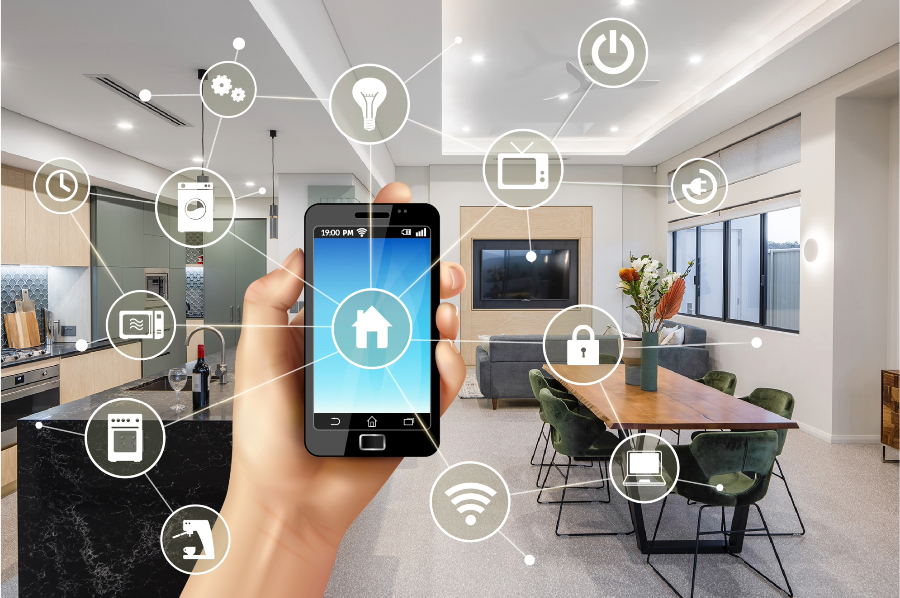In today's rapidly evolving technological landscape, smart homes are no longer a futuristic concept but a reality that is becoming increasingly mainstream. As a landlord, understanding what landlords should know about smart homes is crucial for staying competitive and meeting tenant expectations. This comprehensive guide will delve into the key aspects landlords need to consider when it comes to integrating smart technology into their rental properties.

Understanding the Basics of Smart Homes
Before diving into the specifics, it's essential to grasp the fundamentals of smart home technology. Simply put, a smart home uses internet-connected devices to enable remote management and monitoring of systems and appliances, such as lighting, heating, and security. These devices can be controlled through a smartphone app, a central hub, or even voice commands.
As a landlord, embracing smart home technology can enhance the appeal of your property. Tenants are increasingly seeking homes that offer convenience, security, and energy efficiency, all of which can be facilitated by smart devices. For instance, smart beds can improve sleep quality, while introducing smart tech to tenants can significantly boost their living experience.
Benefits of Smart Homes for Landlords
Increased Property Value
One of the significant advantages of integrating smart home technology is the potential increase in property value. Homes equipped with smart devices are often perceived as more modern and desirable, making them more attractive to prospective tenants. In turn, this can lead to higher rental yields.
Enhanced Tenant Satisfaction
Tenants today are more tech-savvy than ever before, and they appreciate the convenience and security that smart home devices provide. Features such as smart locks, which allow for keyless entry, and smart thermostats, which enable energy-efficient temperature control, can significantly enhance tenant satisfaction and retention.
Improved Property Management
For landlords, smart technology offers a range of tools that can streamline property management. With devices such as smart cameras and sensors, landlords can remotely monitor property conditions, ensuring that maintenance issues are addressed promptly. Additionally, the use of smart lighting can help align with tenants' circadian rhythms, enhancing their living environment.
Challenges and Considerations
Initial Investment and Setup
While the benefits are clear, landlords should also be aware of the initial costs associated with installing smart home technology. These expenses can vary depending on the size of the property and the specific devices chosen. However, it's worth noting that the long-term savings on energy costs and increased rental value often outweigh the initial investment.
Privacy and Security Concerns
Another critical consideration is the privacy and security of both landlords and tenants. Smart devices can be vulnerable to hacking, which is why it's crucial to implement robust security measures. Regular software updates and strong passwords are essential to protecting your investment and ensuring tenant privacy. For more information on securing smart homes, visit signs your smart home is hacked.
Implementing Smart Technology in Rental Properties
For landlords ready to embrace smart home technology, the first step is to assess the specific needs of your property and tenants. Consider starting with basic devices such as smart thermostats and lighting, which offer immediate benefits in terms of energy efficiency and convenience.
It's also advisable to consult with professionals who specialize in smart home installations to ensure a seamless integration. Resources such as the smart home buying guide can provide valuable insights into selecting the right products.

Conclusion
In conclusion, understanding what landlords should know about smart homes is essential for those looking to stay competitive in the rental market. By leveraging smart technology, landlords can enhance property value, improve tenant satisfaction, and streamline property management. Although there are challenges to consider, the benefits of smart homes make them a worthwhile investment for any modern landlord.
Frequently Asked Questions
What are the most popular smart devices for rental properties?
Popular smart devices include smart locks, thermostats, cameras, and lighting systems. These devices offer convenience, security, and energy efficiency, making them highly attractive to tenants.
How can landlords ensure the security of smart home devices?
To secure smart home devices, landlords should use strong passwords, regularly update device software, and consider investing in a robust security system. For more tips, check out the introduction to smart tech guide.
Is it expensive to install smart home technology?
The cost of installing smart home technology can vary, but the long-term benefits often outweigh the initial investment. Many landlords find that the increased rental value and tenant satisfaction justify the upfront expenses.

